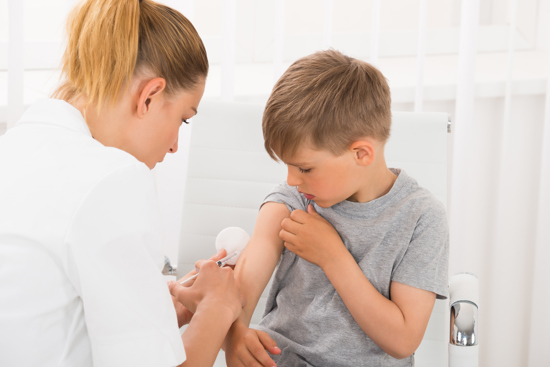What does the pneumococcal vaccine protect you from?
The vaccine protects against 13 pneumococcal types. Before the introduction of the vaccine, these 13 types were the cause of a substantial portion of the pneumococcal infections in children under the age of two.
The vaccine has also reduced the number of cases of inflammation of the middle ear caused by these pneumococcal types. The vaccine does not protect against disease due to pneumococcal types other than the 13 included in the vaccine.
The vaccine contains parts of the bacteria's sugar capsule (polysaccharide) bound to proteins. The vaccine against pneumococcal bacteria is given at the same time as the combination vaccine against diphtheria, tetanus, whooping cough, polio, Hib infection and hepatitis B.
About pneumococcal disease
There are more than 100 different types of the pneumococcal bacterium. Several of these can cause disease in humans, usually pneumonia, sinusitis and inflammation of the middle ear. Occasionally the infection can become more serious, such as blood poisoning (sepsis) or inflammation of the brain membrane (meningitis).
Pneumococcal bacteria can cause disease in both children and adults but different strains dominate in different age groups. Most cases of serious pneumococcal disease occur in very young children, in people over 65 and in people with special risk factors.
Before the introduction of the vaccine, 60–80 children under the age of two were affected annually by serious pneumococcal disease. Most children had been healthy previously and had not been particularly predisposed to disease.

Why is vaccinaton important?
Vaccines are a simple and effective way to protect yourself against a number of dangerous and infectious diseases.
Illustration: Andrey Popov / Mostphotos
Common side effects of the vaccine against pneumococcal disease
Redness, swelling, tenderness or pain at the sting site occurs in more than 10 % of the vaccinated, and may last for a few days.
Anxiety, irritability, crying, malaise, sleepiness, decreased appetite or feeling unwell for 1-2 days after vaccination occurs in some. It can be difficult to know if such symptoms are due to vaccine or something else.
Short-term fever occurs in more than 1 in 10 and is more common when the vaccine is given with other vaccines. Fever above 39˚C is uncommon, and it is recommended to contact a physician to clarify if there is another reason for the fever that requires treatment.
The vaccine used is Prevenar 13.
The vaccine used is called Prevenar 13. More information about the Prevenar 13 vaccine is available on the Norwegian Medical Products Agency (formerly the Norwegian Medicines Agency) website.
Before and after vaccination (In norwegian)
Most children have little or no reaction after vaccination. Remember to inform the nurse if the child has allergies or other health problems.
